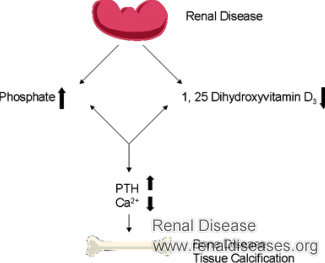Whatsapp: +8615512139310
- Email us:
 Hyperphosphatemia is one of the most important complications in Chronic Kidney Disease, especially in end stage renal disease (ESRD). Knowing its signs or symptoms plays an important role in preventing the condition.
Hyperphosphatemia is one of the most important complications in Chronic Kidney Disease, especially in end stage renal disease (ESRD). Knowing its signs or symptoms plays an important role in preventing the condition.
First, what is hyperphosphatemia?
It is associated with significant pathophysiology in chronic kidney disease (CKD). It is the presence of elevated phosphorus level in blood. The normal range is between 0.81mmol/L and 1.45mmol/L (the reference value is different from countries to countries). Once phosphorus levels in blood beyond the normal range, hyperphosphatemia is diagnosed.
Second, how dose hyperphosphatemia occur in kidney disease?
Hyperphosphatemia is a form of electrolyte imbalance. Normally, our kidneys are responsible to keep electrolyte balance and discharge extra wastes from the body. When kidneys are damaged, kidney function is impaired and large amounts of phosphorus will build up in blood, thus hyperphosphatemia occurs.
What are the symptoms for kidney disease patients with hyperphosphatemia?
If phosphorus level is higher than normal range, it will affect the calcium level in the body. Actually, calcium and phosphorus level are the essential minerals for a healthy body. Under the normal condition, ratio of calcium and phosphorus is kept in a stable value. When phosphorus level in blood increases, calcium level in the body will decrease. Calcium is critical for bone heath. Therefore, when hyperphosphatemia happens, patients are at high risks for bone problems such as bone pain, osteoporosis, broken pone and so on.
The short-term complications of hyperphosphatemia include acute hypocalcemia with possible tetany and, more rarely, acute deposition of calcium/phosphate complexes into joints, subcutaneous tissue, or other soft-tissue areas.
And the long-term complications of hyperphosphatemia can be devastating and can affect any organ system.
Through the above analysis, we can see that high phosphorus level is very dangerous and the effective treatment should be applied as early as possible. Need a further help? Please email to renal-disease@hotmail.com or leave a message below directly and we will do what we can help you.